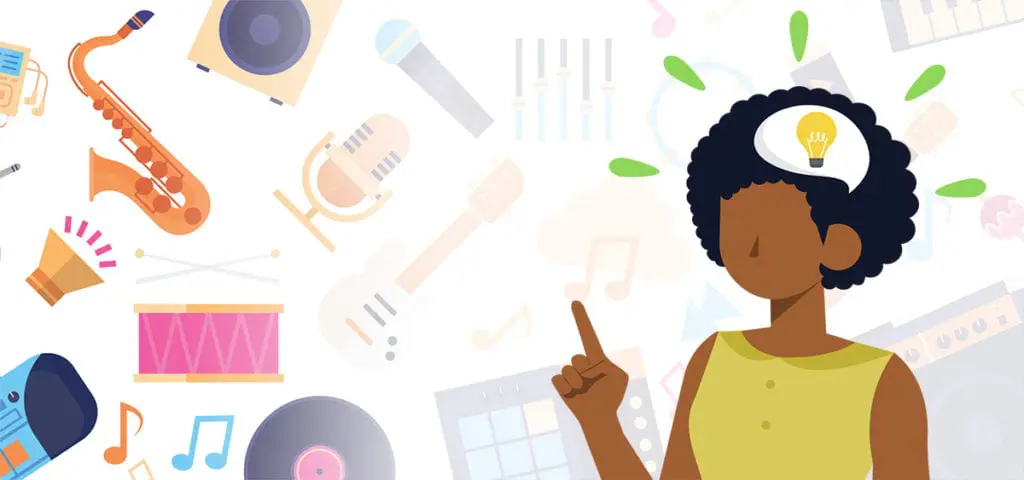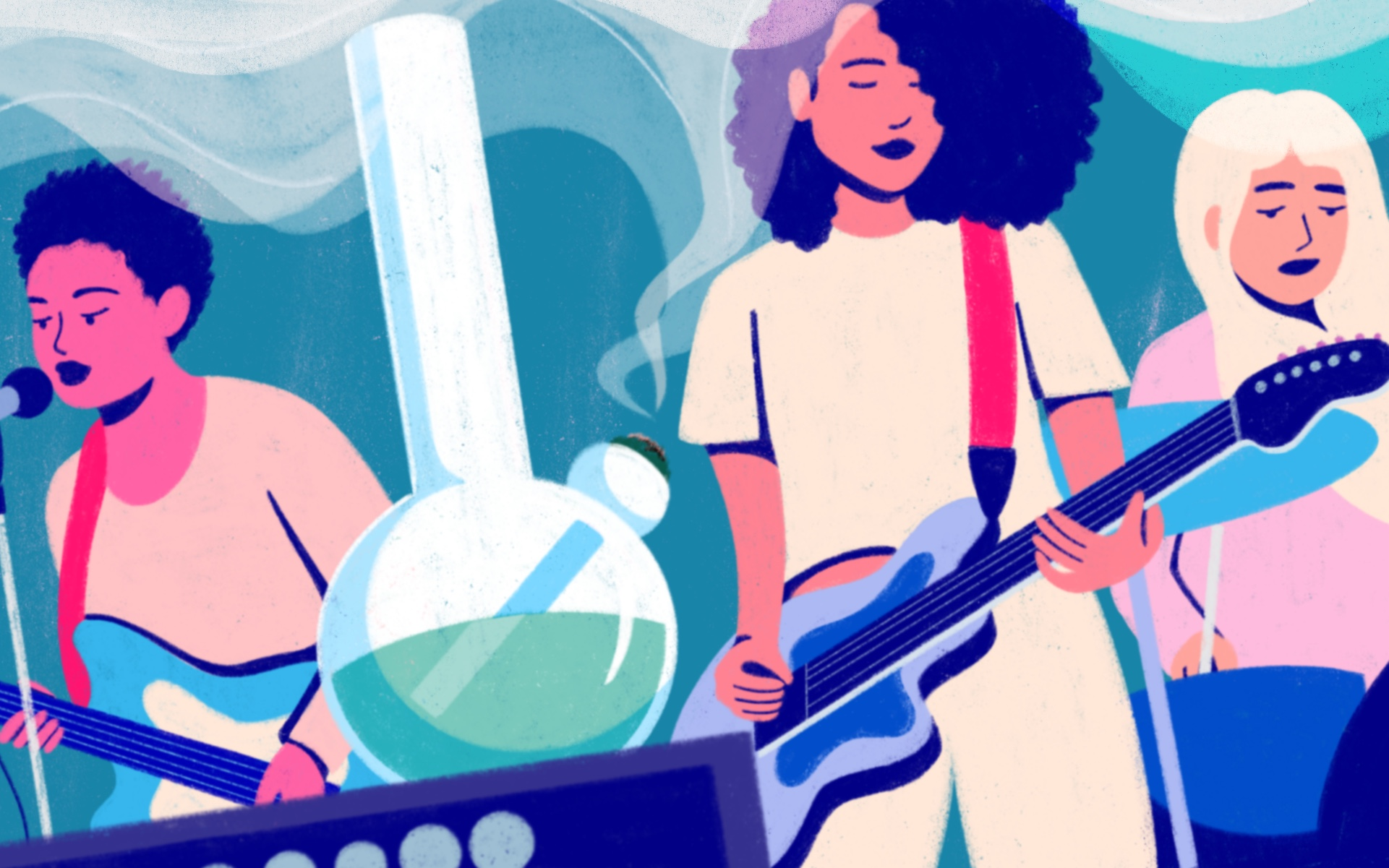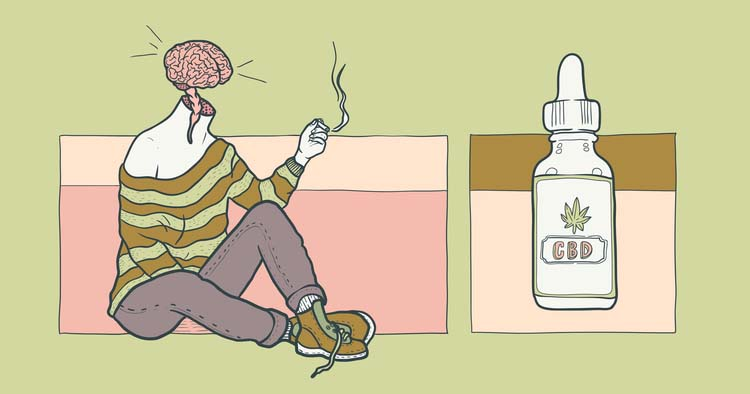Introduction
The use of marijuana for creative purposes has been a topic of debate for years. Some people argue that smoking weed can enhance creativity, while others believe that it can hinder it. With so many opinions on the matter, it can be difficult to determine whether or not weed really impacts creativity.
In this article, we will take a closer look at the relationship between weed and creativity, exploring the science behind it, as well as the experiences of creatives who use weed.

What is Creativity?
Before diving into the topic at hand, it’s important to define what we mean by creativity. Creativity is the ability to come up with original and innovative ideas, to think outside the box, and to solve problems in unique ways.
It can be expressed through a wide range of mediums, including art, music, writing, and even science.
How Does Weed Work in the Brain?
Weed, also known as marijuana or cannabis, contains a chemical called tetrahydrocannabinol (THC). THC is the main psychoactive ingredient in weed, responsible for the high that users experience. When THC enters the brain, it binds to cannabinoid receptors, which are located throughout the brain and body.
The cannabinoid receptors are part of the endocannabinoid system. Which plays a role in regulating a wide range of physiological processes, including mood, appetite, and pain perception. When THC binds to these receptors, it can alter the way that the brain processes information, leading to changes in perception, mood, and behavior.
The Impact of Weed on Creativity
So, how does weed impact creativity? The answer is not so clear-cut. While some people claim that smoking weed can enhance their creativity, others argue that it can actually hinder it. There are a few potential reasons for this.
On the one hand, weed has been shown to increase divergent thinking, which is a key component of creativity. Divergent thinking is the ability to come up with multiple ideas or solutions to a problem. Studies have found that THC can increase the number of ideas generated during creative tasks, as well as the originality and flexibility of those ideas.
On the other hand, weed has also been shown to impair certain aspects of cognitive function, such as memory and attention. This can make it more difficult for creatives to focus on their work or remember their ideas. Additionally, some users may experience negative side effects, such as anxiety or paranoia, which can also impact their ability to be creative.
Pros and Cons of Using Weed for Creative Purposes
There are both pros and cons to using weed for creative purposes. Some of the potential benefits include increased creativity, reduced inhibitions, and a greater sense of flow or immersion in the creative process. Weed can also help to alleviate stress or anxiety, which can be beneficial for those who struggle with performance anxiety or creative blocks.
However, there are also some potential drawbacks to consider. As mentioned earlier, weed can impair cognitive function. Making it more difficult to remember ideas or stay focused on the task at hand. Additionally, some users may experience negative side effects, such as anxiety or paranoia. Which can be counterproductive to the creative process. Finally, there is also the legal and ethical implications of using weed, which can vary depending on where you live and the policies of your workplace or industry.

Studies and Research on Weed and Creativity
Despite the anecdotal evidence surrounding the use of weed for creative purposes. There is relatively little scientific research on the topic. Most of the studies that have been conducted have focused on the acute effects of THC on creativity, rather than the long-term impact of regular use.
One study, published in the journal Consciousness and Cognition. They found that low doses of THC increased the fluency and originality of ideas generated during a creative task. However, high doses had the opposite effect. Another study, published in the Journal of Psychopharmacology, found that a combination of THC and caffeine led to increased creativity, but again, only at low doses.
It’s worth noting that these studies have some limitations, such as small sample sizes and a lack of generalizability to real-world creative tasks. Additionally, the effects of weed on creativity can vary depending on the individual, the strain of weed, and the dose consumed.
Personal Experiences and Anecdotes from Creatives Who Use Weed
While the scientific research on weed and creativity is limited. There are plenty of personal experiences and anecdotes from creatives who use weed. Some writers, artists, and musicians swear by the creative benefits of weed. Claiming that it helps them to think outside the box and come up with new ideas. Others, however, have found that weed can actually hinder their creativity, making it more difficult to focus or remember their ideas.
One possible explanation for these differences is that weed affects individuals differently, depending on factors such as their tolerance, dosage, and mindset. Additionally, the creative process is highly subjective, and what works for one person may not work for another.

Tips for Using Weed for Creative Purposes
If you are interested in using weed for creative purposes, there are a few tips to keep in mind. First and foremost, it’s important to start with a low dose, especially if you are new to using weed. This can help you to avoid negative side effects and gauge your individual response to the drug.
It’s also important to be mindful of your environment and mindset when using weed for creative purposes. Make sure that you are in a comfortable and supportive environment, and try to approach the creative process with an open and relaxed mindset. Finally, be prepared to experiment and adjust your dosage or strain of weed as needed, based on your individual response.
Can Weed Really Impacts Creativity
So, does weed really impact creativity? The answer is not a simple yes or no. While some studies have found that low doses of THC can enhance creativity, others have found that high doses can impair it. Additionally, there is a great deal of individual variation in terms of how weed affects creativity. With some creatives swearing by its benefits and others finding it to be counterproductive.
At the end of the day, the decision to use weed for creative purposes is a personal one. This should be based on a careful consideration of the potential benefits and drawbacks. If you do choose to use weed for creative purposes. It’s important to approach it with an open and mindful mindset, and to be prepared to adjust your dosage or strain as needed. With these tips in mind, you can explore the potential creative benefits of weed while minimizing the risks.

